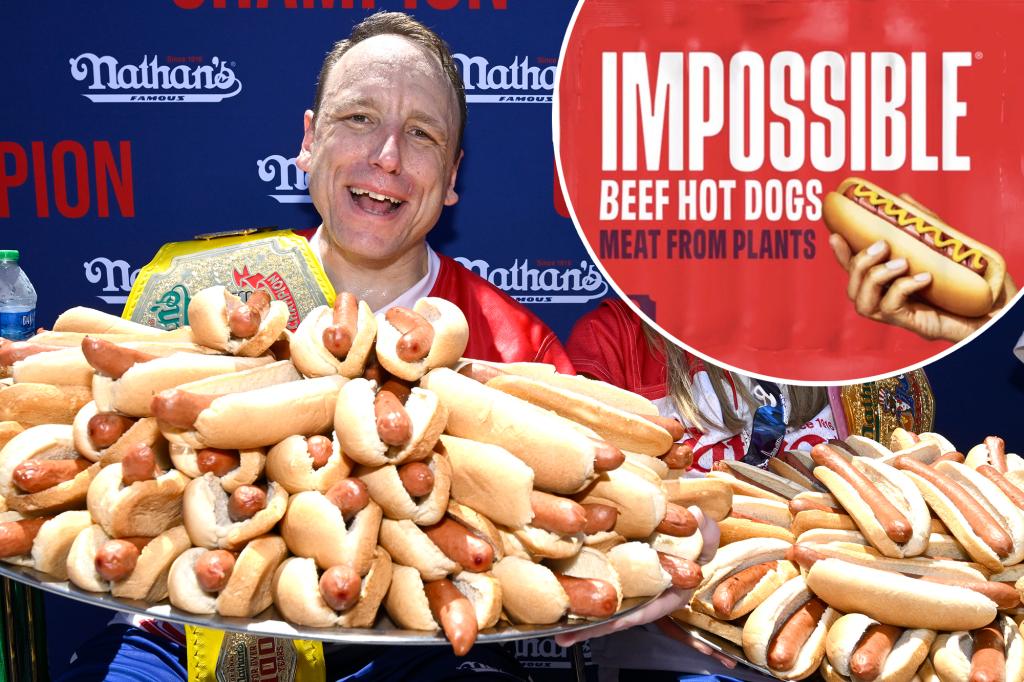The beef between competitive eating champion Joey Chestnut and Major League Eating has escalated due to Chestnut’s partnership with Impossible Foods, a rival brand that sells plant-based hot dogs. Major League Eating is devastated by Chestnut’s choice to represent a competitor and has been working under exclusivity provisions for nearly two decades. Impossible Foods recently introduced its Impossible beef hot dog, claiming it has many health and environmental benefits compared to traditional beef franks. Researchers suggest that ultra-processed foods, such as vegan meat substitutes, may increase the risk of heart disease and early death, challenging the idea that a processed, plant-based diet is healthier than other options.
Despite the potential health risks associated with ultra-processed foods, traditional hot dogs have their own reputation for being unhealthy. In 2015, the World Health Organization classified processed meat, including hot dogs, as carcinogenic to humans and linked it to colorectal cancer. The American Institute for Cancer Research recommends swapping processed meats for healthier options like fresh chicken or fish and emphasizes the importance of a balanced diet rich in whole foods like fruits, vegetables, legumes, nuts, and whole grains. Given the competitive nature of the hot dog industry, making these dietary changes can be challenging for both consumers and competitive eaters like Chestnut.
Chestnut clarified that he does not have a contract with Major League Eating or Nathan’s Hot Dog Eating Contest and that he is being banned due to his partnership with Impossible Foods. Although he has set records in the past by consuming a large number of traditional hot dogs, he has not indicated whether he will compete with Impossible Foods’ plant-based hot dogs. Comparing the nutrition of Nathan’s jumbo restaurant-style beef franks to Impossible beef hot dogs, the latter has fewer calories, less fat, and sodium. However, research suggests that plant-based ultra-processed foods may not be healthier overall compared to other alternatives.
The current hot dog wars highlight the challenges in balancing health concerns with the competitive nature of the food industry. As traditional hot dogs face scrutiny for their health risks, plant-based alternatives like Impossible Foods’ beef hot dogs are also being evaluated for their impact on health and the environment. Chestnut’s partnership with a rival brand has sparked controversy in the competitive eating world, raising questions about the implications of endorsing potentially healthier, but processed, food products. The ongoing debate between traditional and plant-based hot dogs underscores the complexity of navigating dietary choices in a market driven by competition and consumer preferences.


